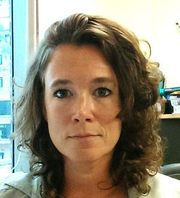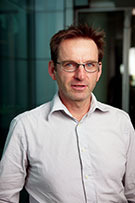Sydney innocence project reviews claims of wrongful conviction
A new innocence project at the University of Sydney will combine forensic psychology with legal expertise to investigate claims of wrongful conviction.
Undergraduate and postgraduate students in psychology and law can now apply to be supervised to review cases for individuals who have cleared a rigorous application process to have their conviction assessed.

“Not Guilty: The Sydney Exoneration Project ultimately seeks social justice for those in need,” said Dr Celine Van Golde, its founder and director.
“Research shows eyewitness misidentification is by far the key cause of wrongful convictions, while other contributing factors can include false memories, false confessions, and laboratory error. The Sydney Exoneration Project applies forensic psychological research into memory and testimony to investigate these issues,” said Dr Van Golde.
In the United States researchers estimate between 0.5 to five per cent of American convictions are recorded against innocent individuals; however, there is currently no reliable national data on the prevalence of wrongful convictions across Australia. Without an independent body mandated with powers and resources to investigate wrongful convictions, they can be difficult to identify.
“Wrongful convictions happen in this country. But without any real mechanism to identify and address them, Australian legal systems are left without a clear picture and means of amending miscarriages of justice,” said Sydney Law School Associate Professor of Evidence and Proof and Sydney Exoneration Project supervisor, David Hamer.
In Britain, an independent Criminal Cases Review Commission (CCRC) has the power to send or refer a case to an appeal court, if it determines a real possibility of a quashed conviction or reduced sentence. The CCRC’s work leads to the overturning of approximately 20 miscarriages of justice a year.
Between 2007 and 2014, NSW had a DNA review panel, which failed to correct a single miscarriage of justice.
But it operated on a far more limited basis than the CCRC; it only considered the most serious cases and could only act where there still existed evidence capable of producing a DNA profile which would clear the defendant.

“There is a clear need in Australia for bodies like the CCRC with proper powers and resources to conduct investigations into possible wrongful convictions across the board. In the absence of a proper government body, innocence projects must attempt to fill the gap,” said Associate Professor Hamer.
The Sydney Exoneration Project will consider cases where no DNA evidence is available, but where other evidence, such as eyewitness error and false confessions, can verify a person’s innocence.
The project, which begins in March, will de-identify cases to protect victims and will publish its findings in scholarly journals.
Research into the outcomes of long-term incarceration on innocent individuals has identified negative health effects such as PTSD, depression and alcohol and substance dependence.
Story by
Study law at the University of Sydney Law School
Sydney Law School is Australia’s first. Since its inception, it has been at the forefront of developments associated with both the teaching and research of law. Its strong sense of commitment to the fundamentals of law is combined with a commitment to innovation and the exploration of issues at the cutting edge.
The Sydney JD comprises the core legal subjects required throughout the world for professional accreditation coupled with the study of a wide range of elective subjects which allows advanced learning in both specialized fields and law in general. Teaching and learning methodology includes a wide range of formats to allow individual choice, a deep understanding of the law, independent research and the development of the skills and ethics inherent in modern professional practice.
Program: Juris Doctor (JD)
Location: Sydney, New South Wales
Duration: 3 years
Semester intake: March
Application deadline: It is recommended that students apply a minimum of three months prior to the program start date.
To be eligible to apply to the Sydney Law School JD, you must have the following:
- Completed an undergraduate degree;
- Achieved a minimum cumulative grade point average (cGPA) of at least 3.0/4.0
Apply now to Sydney Law School!
*

































Ask A Question
Ask us about your program of interest, or if you have a question about our services.
CONTACT US TODAY